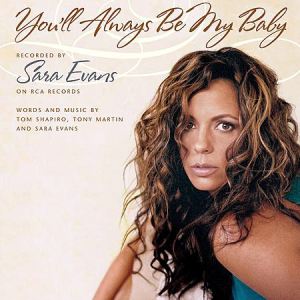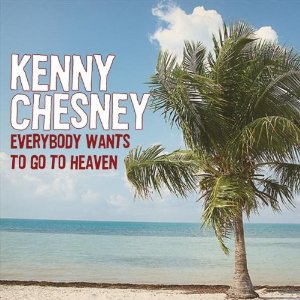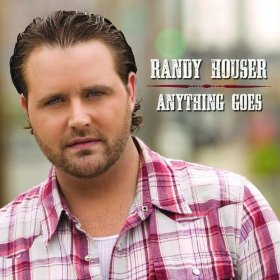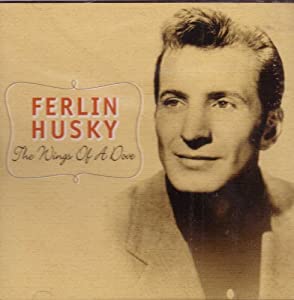Related Research Articles

John Edward Prine was an American singer-songwriter of country-folk music. He was active as a composer, recording artist, live performer, and occasional actor from the early 1970s until his death. He was known for an often humorous style of original music that has elements of protest and social commentary.

"A Boy Named Sue" is a song written by humorist, children's author, and poet Shel Silverstein and made popular by Johnny Cash. Cash recorded the song live in concert on February 24, 1969 at California's San Quentin State Prison for his At San Quentin album. Cash also performed the song in December 1969 at Madison Square Garden. The live San Quentin version of the song became Cash's biggest hit on the Billboard Hot 100 chart and his only top ten single there, spending three weeks at No. 2 in 1969, held out of the top spot by "Honky Tonk Women" by The Rolling Stones. The track also topped the Billboard Hot Country Songs and Easy Listening charts that same year and was certified Gold on August 14, 1969, by the RIAA.
"Poor Poor Pitiful Me" is a rock song written and first recorded by American musician Warren Zevon in 1976.

"Piano Man" is a song written and performed by American singer-songwriter Billy Joel. His first single in North America, it was included on Joel's 1973 album of the same name and later released as a single on November 2, 1973. The song is sung from Joel's point of view as a piano player at a bar, reminiscing about his experiences there and the people he encountered. "Piano Man" is based on Joel's real-life experiences as a lounge musician in Los Angeles from 1972 to 1973, which he had decided to pursue in an effort to escape his contracted New York City-based record company at the time, Family Productions, following the poor commercial performance of the album Cold Spring Harbor. Joel describes various characters, including a bartender named John and a "real estate novelist" named Paul, all based on real-life individuals.

"I'd Do Anything for Love " is a song written by Jim Steinman, and recorded by Meat Loaf with Lorraine Crosby. The song was released in August 1993 as the first single from the album Bat Out of Hell II: Back into Hell. The last six verses feature Crosby, who was credited only as "Mrs. Loud" in the album notes. She does not appear in the video, in which her vocals are lip-synched by Dana Patrick. Meat Loaf promoted the single with American singer Patti Russo.

"The Night the Lights Went Out in Georgia" is a Southern Gothic murder ballad, written in 1972 by songwriter Bobby Russell and first recorded by his then wife, singer and comedian Vicki Lawrence. Lawrence's version, from her 1973 album of the same name, went to number one on the Billboard Hot 100 after its release. Of several cover versions, the one recorded by Reba McEntire for her 1991 album For My Broken Heart peaked at number 12 on Hot Country Songs.

"Don't Take The Girl" is a song written by Craig Martin and Larry W. Johnson, and recorded by American country music artist Tim McGraw. It was released in March 1994 as the second single from his album Not a Moment Too Soon. The song was McGraw's fifth single overall, and his first number-one single on the Hot Country Songs chart. It reached number one on the Canadian country charts as well and it was also a successful pop song, reaching number 17 on the Billboard Hot 100.

"That Summer" is a song co-written and recorded by American country music artist Garth Brooks. It was released in April 1993 as the fourth and final single from his album The Chase and also appears on The Hits, The Ultimate Hits, The Limited Series and Double Live. It reached number-one on the Billboard Country Charts in 1993. The song was written by Brooks, Pat Alger, and Brooks' then-wife Sandy Mahl.

"Some People Change" is a song written by Neil Thrasher, Jason Sellers and Michael Dulaney. It was originally recorded by American country music artist Kenny Chesney for his 2004 album When the Sun Goes Down. It was then recorded by Canadian country music artist George Canyon for his 2006 album Somebody Wrote Love. Finally, by American country music duo Montgomery Gentry recorded their version of the song and released it as a single. It was released in August 2006 as the lead single from their 2006 album of the same name. It peaked at number 7 on the U.S. Billboard Hot Country Songs chart and at number 57 on the U.S. Billboard Hot 100.
"See See Rider", also known as "C.C. Rider", "See See Rider Blues" or "Easy Rider", is a popular American 12-bar blues song that became a standard in several genres. Gertrude "Ma" Rainey was the first to record it on October 16, 1924, at Paramount Records in New York. The song uses mostly traditional blues lyrics to tell the story of an unfaithful lover, commonly called an "easy rider": "See see rider, see what you have done", making a play on the word "see" and the sound of "easy".

"You'll Always Be My Baby" is a song co-written and recorded by American country music artist Sara Evans. It was released in August 2006 as the fourth and final single from her 2005 album Real Fine Place. The song peaked at number 13 on the US Billboard Hot Country Songs chart. The song is also included on Evans' 2007 Greatest Hits album. Evans wrote this song with Tony Martin and Tom Shapiro.

"Everybody Wants to Go to Heaven" is a country music song co-written by American songwriters Jim Collins and Marty Dodson. The song was initially to have been recorded by George Strait for his 2008 album Troubadour, but after Strait decided not to include the song on this album, it was recorded by Kenny Chesney instead. Released in August 2008, Chesney's rendition is his thirty-eighth Top 40 country hit and his fifteenth Number One hit. Chesney's version is the first single from his album Lucky Old Sun, which was released on his own Blue Chair label in association with BNA Records.

"Believe" is a song written by Ronnie Dunn and Craig Wiseman, and recorded by American country music duo Brooks & Dunn. It was released in October 2005 as the second single from their album Hillbilly Deluxe, and it won the Country Music Association's 2006 awards for Single of the Year, Song of the Year and Music Video of the Year. Rolling Stone ranked "Believe" No. 33 on its list of the 40 Saddest Country Songs of All Time in 2019.

"Anything Goes" is the debut single by American country music artist Randy Houser, released in June 2008. It is the title track of his 2008 debut album of the same name. The song was written by Brice Long and John Wiggins.

"Holes in the Floor of Heaven" is a song co-written and recorded by American country music artist Steve Wariner. It was released in March 1998 as the lead-off single from his album Burnin' the Roadhouse Down, and was his first solo single in three years. It peaked at number 2 in both the United States and Canada. The song, written by Wariner with Billy Kirsch, won the award for Song of the Year in 1998 from both the Country Music Association (CMA) and the Academy of Country Music (ACM). In 2005, Steve Wariner re-recorded a new version of this song for his second studio album that he released on his own SelecTone Records titled "This Real Life". The re-recorded version was not released as a single.

"Jacob's Ladder" is a song written by Cal Sweat, Brenda Sweat, and Tony Martin, and recorded by American country music artist Mark Wills. It was released in May 1996 as his debut single, and was served as the first single from his self-titled debut album. It reached a peak of number 6 on both the U.S. Billboard country singles chart and the Canadian RPM Country Tracks chart.

"Wings of a Dove' is a country song written by Bob Ferguson in 1958. "Wings of a Dove" was most popular when it was recorded by Ferlin Husky in 1960. This recording went to number 1 on the country charts for 10 nonconsecutive weeks. It was Ferlin Husky's third and final number 1 on the country chart, spending nine months on it. "Wings of a Dove" was successful on the pop charts as well, peaking at number 12 on the Hot 100. In 1987, Broadcast Music Incorporated awarded Ferguson with the "million air" plays for the "Wings of a Dove".
"Mama Sang a Song" is a country music song written and recorded by Bill Anderson.

That's the Way Love Goes is the 38th studio album by the American country singer Merle Haggard backed by The Strangers, released in 1983.
"Crime in the City " is a song written by Neil Young that was first released on his 1989 album Freedom, although Young had performed longer versions in concert earlier. It was not released as a single but reached number 34 on the Billboard Magazine Mainstream Rock Tracks chart. It is a lengthy song, with a released version of almost nine minutes, but earlier versions were more than twice as long. It has been characterized as a document of moral rot in urban regions of the United States in the late 1980s.
References
- ↑ Whitburn, Joel (2004). The Billboard Book Of Top 40 Country Hits: 1944-2006, Second edition. Record Research. p. 313.
- ↑ "T.G. Sheppard Chart History (Hot Country Songs)". Billboard.